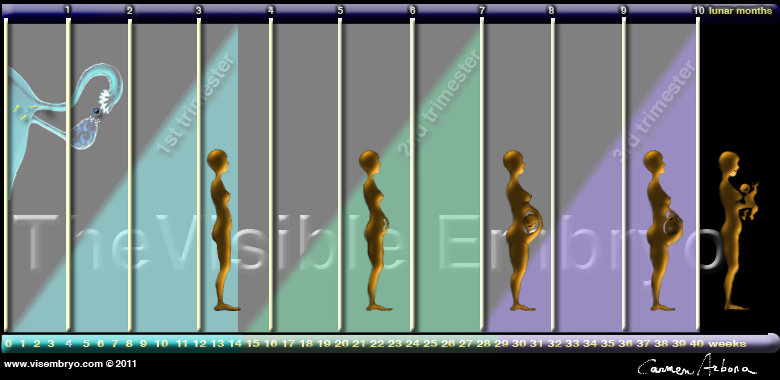|
|
|
Home | Pregnancy Timeline | News Alerts |News Archive Jun 25, 2015

Previous research has linked impulsivity and lack of self-control to risky teen sex.
This study suggests that improving cognitive abilities — the ability to concentrate
and filter out distractions — improves "working memory" and teaches self control. |
|
|
|
|
|
Strong working memory can reduce teen sex?
A new study has found that differences in working memory can predict early and risky sex in teens.
Teenagers vary a great deal in their ability to control impulses and regulate their behavior. Those who have difficulty with impulse control can be more prone to risky sexual behavior, with all the serious consequences — sexually transmitted disease and unintended pregnancies. This new study has found teens with weak working memory have even more difficulty controlling impulsive urges and considering the consequences of their behavior.
Working memory is the system in the brain that allows us to draw on and use information to plan and make decisions. It develops throughout childhood and adolescence.
The research was carried out by the Universities of Oregon and Pennsylvania, and the Children's Hospital of Philadelphia. It was published in the journal Child Development.
"For the first time we show that individuals who have pre-existing weaknesses in working memory are more likely to have difficulty controlling impulsiveness in early to mid-adolescence. Impulsive tendencies are associated with early and unprotected sex in adolescents, even after taking into account parental involvement, socioeconomics, and monitoring sex behavior."
Atika Khurana PhD, assistant professor, Counseling Psychology and Human Services, the University of Oregon, study leader.
The study followed 360 adolescents ages 12 to 15, from a range of racial and ethnic backgrounds, from low to mid socio-economic status, and for two years.
Researchers define working memory as a teen's ability to maintain focus on information relevant to a task. Impulsivity was measured using an assessment of a teens' ability to delay gratification, to self-report their tendencies to act without thinking, and who seek excitement ('sensation seeking').
Using privacy-enhanced, computer assisted self-interviews, teens gave their own reports on their risky sexual involvements — such as what age they were when they first had intercourse and whether they engaged in unprotected sex.
Youth with weak working memory at the start of the study reported larger increases in impulsive tendencies over the entire 2 years, boosting their likelihood of early and unprotected sex. 'High sensation' seekers are not the same as those with weak working memory, as these teens didn't increase their likelihood of risky sex.
Parental socioeconomic status and involvement in their children's lives related well to improved working memory and sexually risky behavior. But, the link between working memory and sexual risk taking was stronger than other influences.
"Our findings identify alternative ways to intervene preventively. For adolescents who have a weak ability to override strong impulses, improving working memory may provide greater control over risky sexual behavior. Certain parenting practices, such as nurturing and responsiveness have also been shown to support a developing working memory. Interventions should aim to strengthen these types of parenting practices as well."
Dan Romer PhD, research director, Annenberg Public Policy Center, the University of Pennsylvania, lead investigator of the longitudinal project on which the study was based.
Abstract
This study examined the prospective influence of adolescent working memory (WM) on changes in impulsivity and sexual risk taking and assessed whether this relation could be explained by confounding effects of parental influences. Data from 360 community adolescents (Mage = 13.5 ± 0.95 years; 52% female; 56% non-Hispanic White; low-mid socioeconomic status (SES); recruited from Philadelphia area in 2004–2005) were analyzed using structural equation modeling to predict changes in impulsivity and sexual risk taking over a 2-year follow-up, using baseline assessments of WM, parental monitoring, parental involvement, and SES. Stronger WM predicted reduced involvement in sexual risk taking at follow-up, effects channeled through changes in impulsivity dimensions of “acting without thinking” and “inability to delay gratification.” Parental variables had a protective influence on adolescent impulsivity and risk involvement, but the effects of WM operated independently of parental influences.
Summarized from Child Development, Stronger working memory reduces sexual risk taking in adolescents, even after controlling for parental influences by Khurana, A (University of Oregon), Romer, D (University of Pennsylvania), Betancourt, LM, Brodsky, NL, Gianetta, JM, and Hurt, H (The Children's Hospital of Philadelphia). Copyright 2015 The Society for Research in Child Development, Inc. All rights reserved.
The National Institute on Drug Abuse has funded this study.
Return to top of page
|
